Tony Eldridge's Blog, page 8
June 29, 2012
Review: Amazon Categories Create Best Sellers By Aggie Villanueva
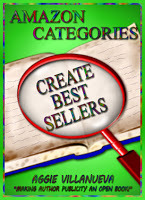
In today's post, I'll be reviewing Aggie Villanueva's new book, Amazon Categories Create Best Sellers . This gem has some valuable tips to help you take advantage of Amazon's free marketing opportunities.
Before we get to the review, I'd like to announce my newest social media marketing article published in the current issue of Collier's Magazine, Establishing A Social Media Presence Today . I'm thrilled to be part of this venerable magazine. It's had some of the most famous authors write for it, including Winston Churchill, Ernest Hemingway, Sinclair Lewis, Jack London, F. Scott Fitzgerald, J. D. Salinger, John Steinbeck, Pearl S. Buck, and Kurt Vonnegut. Check out the relaunch of this American icon today.
Now, on to today's book review...
Amazon Categories Create Best Sellers
By Aggie Villanueva
I love finding books that give authors tools to help them market their books, especially books that share simple, powerful and cost effective advice. That's what I found in Aggie Villanueva's new book, Amazon Categories Create Best Sellers . I was hooked from the very beginning when I read this:
"I know authors who send potential buyers to every other sales link, like their blog, or the place they published it, such as CreateSpace or Lulu. Everywhere except Amazon simply because they earn more royalties per book. But if you don’t sell many books at these other sites, and most authors don’t, what’s the advantage? (This is covered in Chapter Four.)
Consider this. No matter what site across the Net you’re selling books from, as often as possible, you should use its Amazon link for customers to actually purchase. There are many reasons, and we’ll get to them, but here’s the best; constant free and major book promotion you can’t get elsewhere."
While I believe there is a place in a strong book marketing plan to promote buy links to other sites, Aggie nailed the importance of making sure you promote the granddaddy of all sites for your book, Amazon.com.
This book will walk you through the process of discovering how to effectively use tags, reviews and discussion groups to help your book break into category lists as best sellers. Many author's don't know that they have a say in what categories their book shows up in. Careful category consideration can make the difference a book that drips sales and one that breaks into a fevered sales pitch.
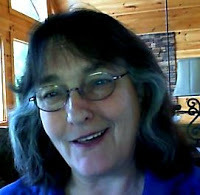
One thing that makes Amazon Categories Create Best Sellers a gem of a book is that the author walks the reader through the steps needed to take advantage of using Amazon categories in their marketing plan while also explaining the reasoning behind her advice. This gives the reader an understanding of why things work on Amazon which translates to having a stronger book marketing plan.
While this book is relatively small, it packs a lot into its 78 pages. And peppered throughout the book, readers will find links to supplemental videos along with links to great supplemental material that will help readers better market their book on Amazon.
Not only does the author give advice on how to choose categories for your book, she also shows you how to monitor and track your book's performance in these categories.
One of the ways I assess the value of new book marketing titles is whether I walk away with something practical I can use for marketing my own books. After reading Aggie Villanueva's new book, Amazon Categories Create Best Sellers , I can tell you that I walked away with a list of items I'm going to be working on in my own book marketing plan. Who knows, maybe I can reignite sales from my older titles on Amazon.
--------
Tony Eldridge is the author of The Samson Effect , an action/adventure novel that Clive Cussler calls a "first rate thriller brimming with intrigue and adventure." He is also the author of the Twitter marketing book, Conducting Effective Twitter Contests . His new novel, The Lottery Ticket , was just recently released on Kindle.








Published on June 29, 2012 04:58
June 25, 2012
Stumbling on New Readers By Anita Brady

Recently, I've been asked by a lot of authors about StubleUpon. For some, this is a real friend when it comes to marketing your book. For others, it's an enigma, especially in how it can benefit you as an author. If you're like many people, you've heard stories of someone who has gained tens of thousands of hits via StumbleUpon. I know this blog often spikes it's daily visits by tens of thousands because a post has been stumbled.
Today, I have a guest to speak to authors about StumbleUpon. Anita Brady is the President of 123Print.com. She will give you the scoop on this amazing social media marketing tool and suggest ways authors can harness its power in their book marketing plan.
Stumbling on New Readers
StumbleUpon search engine helps target your ideal readership
By Anita Brady

It is a brave new world for authors with the rising popularity of self-publishing and the promotional options available through social media. Whereas not that long ago self-published books weren't afforded a second glance, they're now taking the literary world by storm. An author friend of mine recently benefited from his regular use of social media to the tune of major publishers such as Random House and Penguin Books fighting over the rights to his works, and film icons calling to discuss movie rights.
How did he do it? While the story was good, no one really knew him as an author, so a few years ago he started a Facebook page for his books. He posted regularly, sharing clips of his next book and discussing chapter ideas with friends. Happy to be a part of the process, those friends bought copies of the book and told their friends about it. Slowly at first and then with rapidly increasing speed, the author's Facebook page began to blossom out of his control and he had to create a new page just to handle the volume. As more people bought the book, his ranking went up on Amazon.com and by the time he reached number ten on the most popular science fiction Kindle books, publishers were already calling with inquires.
StumbleUpon steps up in popularity
The speed of social media growth isn't always to an author's benefit, however. With Facebook now boasting more than 900 million users, it's getting harder and harder to find new authors. Luckily, a search engine only recently celebrating a rapid rise in membership might hold the key to bringing fresh new faces to your author and book pages.
StumbleUpon, a form of web search engine, has actually been around since 2001, but has only become popular in the past two years. A lot of this is due to the site becoming available on mobile platforms as well as on the web outside of a browser extension. But what's really amazing is that, despite a membership of about 25 million compared to Facebook's 900 million or Twitter's 140 million, it's already driving more than 50 percent of social media site referral traffic (http://mashable.com/2011/08/19/stumbleupon-social-traffic/).
How to making stumbling work for you
The way StumbleUpon works is by learning what you, the user, like to view. When you first open your account, the site asks you what categories of interest you prefer such as literature, astronomy, technology, crafts, homemaking, etc. Once you set up these basic parameters, you can click the "stumble" button in the top toolbar and the engine will take you to a website that matches your preferences. If you like it, you can click the "thumbs up" button on the toolbar. If you don't, you can click "thumbs down." The engine learns from your choices and takes you to sites more along the lines of your likes. Additionally, it draws from users with similar preferences and adds their likes to your stumbles. If you want to search a specific topic, you can enter it in the "search for an interest" toolbar. There's even an option to post a comment about the website you've stumbled on and to read other users' opinions of the site.
It's basically an intuitive way to find just what you like on the internet without having to come up with just the right search phrase – and it's a great opportunity for little-known authors.
If you have a website and blog, as a StumbleUpon user you can add your website and/or blog posts to the pool from which the StumbleUpon search engine draws. As an author, your preferences probably already show that you love literature and interests that relate to your particular genre. With the pages added to the Stumble selection, the engine looks for other users with similar preferences and adds your posted sites as a potential stumble. The more you use the site, the more specific your results become and the more targeted your preferred pages become to the audience you want.
If you're not willing to wait for the process of propagation, however, there's also the option of direct advertising. By using StumbleUpon's advertising branch, Paid Discovery, you can pay to have your site included in user experiences. Even though paid websites only appear in up to 5 percent of a user's experience, considering the fact that the average StumbleUpon user spends about 7 hours stumbling per month, that's a lot of appearances. And since your site is your advertising – the user goes directly to it as a stumble – there's no need to create an ad. The stumble then works in the same manner as a regularly stumbled site. Users can like it or dislike it, and can post a comment on the site's comment page. The only difference is that a small indicator will appear in the toolbar stating "sponsor" for paid advertising.
As an author, it helps to get the word out about your work in any and every way possible. And with StumbleUpon, you can truly begin to target the readership pool of your dreams.
------

Anita Brady is the President of 123Print.com, one of the foremost suppliers of online business cards, and other office supply items for small businesses and individuals. Anita has overseen strategic marketing and other efforts for many different companies.
--------
Tony Eldridge is the author of The Samson Effect , an action/adventure novel that Clive Cussler calls a "first rate thriller brimming with intrigue and adventure." He is also the author of the Twitter marketing book, Conducting Effective Twitter Contests . His new novel, The Lottery Ticket , was just recently released on Kindle.








Published on June 25, 2012 04:00
June 20, 2012
A Free Book Launch Experiment By Shelley Hitz
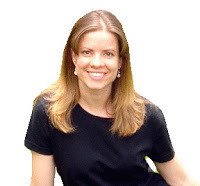
Shelley Hitz is back with another insightful post on marketing for authors. In this post, Shelley will talk about her recent book launch using KDP Select and how she created joint book-promoting efforts with other authors. It's this kind of out-of-the-box thinking that has made Shelley a successful book marketer and online promotions expert. After you read her post today, check out her links at the bottom of the page.
A Free Book Launch Experiment
By Shelley Hitz
During a season of transition in my life, I found myself overwhelmed with negative emotions like self-pity and a complaining spirit. It was as if a dark cloud had descended over me. I prayed and asked God for wisdom on how to overcome these negative emotions. And I sensed Him leading me to do this 21 days of gratitude challenge.
Over the course of the 21 days, God began to change me as I spent intentional time being grateful for all I have been given. I did this through writing in my journal each day and also sending a hand-written thank you note to someone different each day.
And so I decided to share my experience in a short, but powerful Kindle ebook.
Using the KDP Select Program
I decided to use the KDP select program to launch my new book. I know there are differing opinions on the effectiveness of this program, but so far it has been profitable for the books I have enrolled in the program.
There is Power in Numbers

However, a week before my promotion was scheduled, I got an idea. What if I would contact other Christian authors and ask them if they wanted to coordinate a free book promotion for the same days as mine. That way we could harness the power of multiple platforms to increase the success of our promotion.
I sent out some individual e-mails as well as well as posted on the John 316 Marketing Network, a forum for Christian authors. Within 24 hours I had 17 authors willing to join in my efforts. Wow!
I decided to call it a free “Christian Book Shopping Spree” and allowed each author to post the books on their own blog or promote it on my site. That way all of our books are still getting exposure, but it gives each author the opportunity to drive traffic to their blog. I also wrote several Facebook and Twitter posts that each author could use in promoting the event.
You can see the page I set up for the event here: www.christianspeakers.tv/free-christian-book-shopping-spree/
Go and download the books while you’re there and join in on the fun!
More Exposure For Christian Authors
Are you a Christian author? If so, make sure to join my Facebook page where you can promote your free promotions, giveaways and contests. This page is growing quickly…who doesn’t like something free, right? And it is one way to gain more exposure for your book.
Like our page and post your promotions here: www.facebook.com/getfreechristianbooks
How Can You Do Something Similar?
The great thing is that you can do something similar. I recommend building relationships with other authors in your genre or niche. Reach out to them and offer to like their page, agree with their tags or do a book review for them.
Then, set a date for your group promotion and contact other authors to see if they would like to join in. I don’t necessarily recommend setting everything up one week in advance like I did, but give yourself time to adequately prepare and set up your promotion.
I’m excited to see how our promotion goes on Wednesday 6/20/12 and Thursday 6/21/12. Make sure to watch my free book launch experiment in action here: www.christianspeakers.tv/free-christian-book-shopping-spree/
------

Shelley Hitz is an entrepreneur, author and speaker. Her website, www.self-publishing-coach.com provides resources and tutorials that help you publish and market your book. Sign up for her newsletter, "Self Publishing Tips" to download her book templates, which she offers surprisingly free here: www.self-publishing-coach.com/newsletter.html.
You can also find Shelley on:
Facebook: www.facebook.com/selfpublishingcoach
Twitter: www.twitter.com/self_publish and
YouTube: www.youtube.com/selfpublishingcoach
--------
Tony Eldridge is the author of The Samson Effect , an action/adventure novel that Clive Cussler calls a "first rate thriller brimming with intrigue and adventure." He is also the author of the Twitter marketing book, Conducting Effective Twitter Contests . His new novel, The Lottery Ticket , was just recently released on Kindle.








Published on June 20, 2012 05:38
June 11, 2012
Facebook for Book Marketing: Changes are Afoot By Christopher Wallace
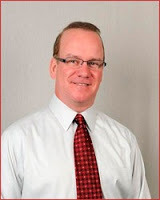
As an author, it can be confusing with all the choices we have available to promote our books. In today's guest post, VP of Sales and Marketing with Amsterdam Printing, Christopher Wallace, gives his insights on opportunity for authors. With the recent IPO for Facebook and questions around their advertising effectiveness, Christopher gives authors ideas when it comes to promoting books online using advertising opportunities.
Facebook for Book Marketing: Changes are Afoot
Christopher Wallace, Vice President of Sales and Marketing for Amsterdam Printing
If you're an author (and you're web savvy enough to be reading this blog), chances are that you've used social media to promote your work in the past. With Facebook, this probably took one of two approaches.
Of course, you've no doubt marketed your books to friends and followers with status updates, simply by letting them know how and where they can make a purchase (or simply keeping them updated on your progress and events surrounding the release). Some of you, however, may have purchased a Facebook ad. These are the little boxes that exist over on the sidebar of your browser. They're made to blend into the Facebook theme as you browse around, but they're ads nonetheless.
The ads are always in the same place. Even though they're often relevant to my interests (Facebook is frighteningly good about that), I tend to utilize 'banner block,' ignoring the marketing messages in the same way I often glaze over banner ads on other websites.
I'm not alone in that tendency. Days before Facebook's initial public offering in mid-May, General Motors announced that they were withdrawing their $10 million ad contract with the company, citing a lack of effectiveness. In fact, a 'successful' click-through rate on a Facebook ad is only 0.5 percent. That means that one in 200 people will click on your ad (and that's a best case scenario).
Although GM's withdrawal wasn't enough to keep Facebook's share price from reaching $45 in the early hours of trading, it's since declined dramatically, falling under $27 in just two weeks time. Credit for that slide goes to a public realization of Facebook's monetization problem. With a large percentage of their traffic moving to mobile usage, how do they keep advertising dollars rolling in without critically compromising the user experience?
Taking a Cue from Tumblr
Blog platform Tumblr is a favorite of many authors these days. With infinite control over appearance and a complete lack of advertising, the site's fresh vibe is reminiscent of Facebook years ago, when it was still the indie underdog to MySpace.
Tumblr, however, is growing fast, and also in desperate need of a monetization plan. Until earlier this year, the company's sole income was largely derived from selling custom theme templates to users. To supplement that, they announced 'Highlighted Posts' in February.
When a user gets ready to post their latest bit of genius, they now have the option of paying $1 to highlight the post, featuring it with a sticker in the adjacent margin and making it 'stickier' on other users' walls.
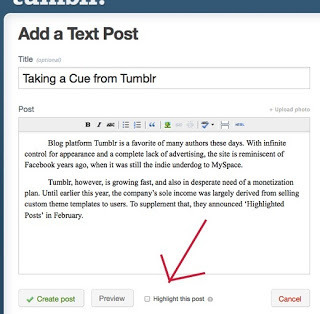
Still an indie darling, Tumblr hasn't received much negative pushback for the move.
Recognizing the opportunity, Facebook followed suit with a beta program launched in New Zealand this March. Users were given varying options between 40 cents and $2 to make their status updates rank higher and remain longer on their friends' news feeds.
While the blogosphere debated whether or not allowing users to pay to highlight their posts would ruin the organic algorithms of Facebook, the company went ahead and took a big step to appease shareholders by launching Promoted Posts on May 31.
Available to Pages (these are typically used by businesses and organizations, unlike 'profiles' used by individual users) with more than 400 'Likes,' the new feature gives business users the opportunity to promote their individual status updates. A button next to the blue 'Post' button opens a drop down menu that gauges how many followers the page has and how many a highlighted post can reach.
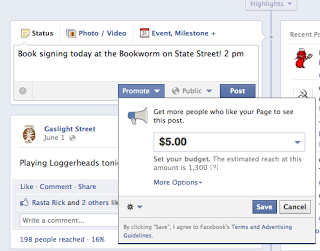
If you have 1,000 followers, chances are that your average status update reaches 16 percent of them. To prove the viability of paid posts, Facebook even added a tracking statistic at the bottom of each post, allowing users to judge the effectiveness of paid vs. unpaid posts.
Fork over a small amount -- $5 perhaps -- and that post will remain 'sticky' on followers pages for three days, garnering as high as a 75 percent view rate.
I don't know about you, but if I had just published a book, I'd sure want 75 percent of the people that Like my page to be aware of that and know where they can buy it.
Of course, we're in the early stages, before this new method has caught on across Facebook's array of nearly a billion users. There's a legitimate concern that paid posts could end up dominating the average users' wall. We'd all end up being a lot more careful about which businesses we 'Like,' or perhaps we'd just switch to a different social media platform altogether.
Like Tumblr, perhaps.
What do you think? Would you pay to promote your book directly onto the Facebook news feed of your followers?
--------
Christopher Wallace, Vice President of Sales and Marketing for Amsterdam Printing, has more than 20 years experience in sales and marketing. At Amsterdam Printing, a leading provider of custom pens and other promotional items such as custom USB drives, Christopher is focused on providing quality marketing materials to small, mid-size and large businesses. He regularly contributes to Promo & Marketing Wall blog.
--------
Tony Eldridge is the author of The Samson Effect , an action/adventure novel that Clive Cussler calls a "first rate thriller brimming with intrigue and adventure." He is also the author of the Twitter marketing book, Conducting Effective Twitter Contests . His new novel, The Lottery Ticket , was just recently released on Kindle.








Published on June 11, 2012 08:23
June 1, 2012
Tradeshows Like BEA May Not Be What You Think By Carolyn Howard-Johnson
 Today, we have a returning guest vet to Marketing Tips For Authors. Carolyn Howard-Johnson, creator of the critically acclaimed HowToDoItFrugally series of books for writers is back with advice and insights about tradeshows for authors. With BEA right around the corner, this comes at a perfect time.
Today, we have a returning guest vet to Marketing Tips For Authors. Carolyn Howard-Johnson, creator of the critically acclaimed HowToDoItFrugally series of books for writers is back with advice and insights about tradeshows for authors. With BEA right around the corner, this comes at a perfect time. Tradeshows Like BEA May Not Be What You Think
By Carolyn Howard-Johnson
Excerpt from The Frugal Book Promoter: The chapter this is taken from includes more on signing, more on how to get a signing spot via the back door, more on how tradeshows aren’t just for the publishing industry, and more on how to find the ones that may benefit your book, etc.
Authors don’t sell books at tradeshows like Book Expo America. We give them away. We’re selling only in the sense that we’re promoting them to the people who come to tradeshows, people who will help us sell them, people like publishers, editors, librarians, and bookstore buyers.
Many tradeshows will not let booth participants sell merchandise directly from the tradeshow show. Tradeshows are about marketing, though customers may place orders with vendors for future delivery. It’s safe to say that tradeshows exist for every industry. In general, they are huge, very busy, creative places. They’re also confusing and can be very expensive to participate in.
It confuses many writers that these shows often call themselves book fairs. To keep our terms straight, we’ll speak of book fairs as those where readers (and yes, others!) come for a fun day of book-browsing and maybe some buying.
Probably the most famous tradeshows in the world of publishing are Book Expo America, London, and Frankfurt. Library organizations hold regional tradeshows for easy access by librarians. To help you see the difference between tradeshows and book fairs, two of the most famous book fairs in the U. S. are the one founded by Laura Bush in Washington DC and the one sponsored by the LA Times in Los Angeles.
Authors dream of being part of tradeshows but often don’t get to participate because booths are expensive, travel is expensive and access is closed to individual authors and they don’t know how to get around those restrictions.
Services have sprung up to fill the void. Some organizations offer to put your book on display in their booths at these publishing-industry shows for a more reasonable cost than renting a booth on your own. Booths can easily run over $1500 and these services usually cost $200 to $500. But your book will get lost among dozens, if not hundreds that they “feature.”
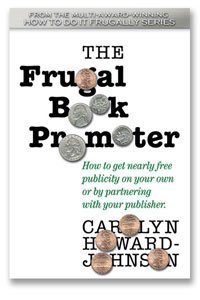
The sponsors of these booths often claim to have great success selling the foreign rights to books or pitching self-published books to large publishers. If authors can’t be on the premises to show, talk about, and sign their own books, the money spent for these services will almost certainly be wasted. The fee is paid up front, so the caretakers of the booth will not be invested in the success of the books on display. The sales person in the booth will never have read the book or met the author. There is usually no way to hold the organization accountable for lack of a success they didn’t really promise to begin with.
If you are considering a service like this, ask if they are willing to provide their service and get paid only if they produce results. When I say “results” I don’t mean a list of publishers who have “shown an interest.” The lists I was given were either not detailed enough for me to reach the “interested party” or were generic lists given to all their clients. Many of these services do their best, I’m sure. I just think that you can probably spend your money more effectively.
If you can afford to be in these booths in person, here are the advantages:
Bookstore buyers, acquisition librarians, and the media do attend tradeshows and you might generate interest for your book with some of them.
Tradeshows can be great learning and networking experiences. Publishers, distributors, warehousers, book-oriented media, foreign rights agents, and publicists will be there. And they expect to be pitched! Most tradeshows even include great education programs taught by the best in the industry.
If you’re there on a press pass (and you may be able to get one if you are a bona fide reviewer or writer on matters of publishing for any branch of the media), you will have access to the press room where you can stock their shelves with your media kits and pick up others kits, too.
You may someday be a presenter or panelist at one of these shows. If you are an expert on some aspect of publishing and have some speaking credentials, put your expert query letter skills to good use and see what happens.

Carolyn Howard-Johnson is the author of the multi award-winning HowToDoItFrugally series of books for writers. Learn more about her and find lots of free aids for writers in the Writers' Resources section of her Web site at www.howtodoitfrugally.com.
--------
--------
Tony Eldridge is the author of The Samson Effect , an action/adventure novel that Clive Cussler calls a "first rate thriller brimming with intrigue and adventure." He is also the author of the Twitter marketing book, Conducting Effective Twitter Contests . His new novel, The Lottery Ticket , was just recently released on Kindle.








Published on June 01, 2012 07:06
May 18, 2012
Kickstarter For Novelists by Rick Chesler
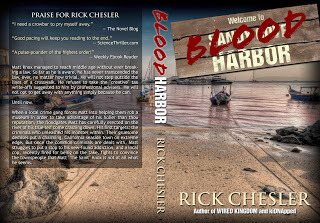 We have a veteran author back to Marketing Tips For Authors to share a fascinating marketing platform with us today. Rick Chesler's next book, Blood Harbor is coming out soon, but a quick trip to Amazon.com will get you caught up on his current action/adventure novels. When you're through with this post, you might want to check out his other posts on this blog:
We have a veteran author back to Marketing Tips For Authors to share a fascinating marketing platform with us today. Rick Chesler's next book, Blood Harbor is coming out soon, but a quick trip to Amazon.com will get you caught up on his current action/adventure novels. When you're through with this post, you might want to check out his other posts on this blog:Pre-Publication Book Marketing Activities
Post-Publication Book Marketing Activities
With this post adding to your marketing arsenal, you'll have a lot of weapons for you to attack and execute your own book marketing plan.
KICKSTARTER FOR NOVELISTS
by Rick Chesler
Thanks once again to Mr. Tony Eldridge for having me as a guest on his fantastic authors’ blog. It's good to be back! I'm here to discuss my latest book project, something very different from anything I've tried before, not so much writing-wise (a thriller is not all that different from a techno-thriller, after all), but in terms of how to bring the book to the reading public. I'm working on a suspense thriller called BLOOD HARBOR. The book isn't done yet, but it's well underway and as I'm sure more than a few writers can attest to, the question of "What the heck am I going to do with this thing when it's finished?" crossed my mind more than once. Today more than ever there are a plethora of options in addition to the big 6 NYC houses: small press, self-publish to kindle, self publish with print books and kindle, serialize on my website, a combination thereof (e.g. sell the print rights to a small press but retain the ebook rights)? But even these options are pretty well travelled these days, and so when something new comes along that seems viable I pay attention.
Enter Kickstarter.com, billed as a "funding platform for creative projects." A novel is a creative project, right? And hey, I'm writing a novel! So just what is this Kickstarter? Technically, it's known as a "crowd-funding" site that utilizes a "provision-point mechanism." All that means is that multiple parties (people, businesses, whatever) can fund or "back" a given project and that the project has to reach a minimum dollar amount of funding within a pre-specified period of time in order to receive the money raised. So picture people surfing a website for ideas to fund, they come across one that looks good and say, "That would be great if that guy can really do that, I'm in with $50!" If the project is trying to raise $5,000 in 30 days but only $4,000 is raised at the end of that time, that project will not be funded. They get zilch, and the backers, whose money was held in escrow by Amazon Payments from the time they "pledged" to back that project (you knew that wily Amazon would find a way to get involved in this somehow, right?), are not billed.
So, if a project is successful, it's clear what the creators get: money to achieve their goal. But what's in it for the backers? Rewards, as they are known in Kickstarter parlance; whatever was indicated the backers would receive in the tiered pledge system common to the site. With novels, it might work something like this:
Pledging $5 gets you a copy of the (as yet unpublished and in some cases, even unwritten) e-book. This is effectively the same as pre-ordering the book. Pony up $15 and you get your name in the acknowledgements section of the book as an early supporter. $25 results in you getting a paperback signed by the author and mailed to your door, and so on and so forth. Typically the higher rewards are all-inclusive of those below them. High dollar amounts sometimes come with unique and customized rewards. For example, contribute $100 to my campaign for BLOOD HARBOR, and in addition to receiving signed copies of the paperback and hardcover editions ($25 and $75 rewards, respectively) you'll also see yourself as a character in the novel (based on your name and physical description you provide me). So it's a flexible and interactive platform that really is limited only by your imagination.
Launched in 2009, Kickstarter has long been the domain of indie film and music endeavors, which continue to dominate the site to this day both in terms of sheer number of projects and total dollars raised. But books, including novels and particularly graphic novels, have begun to carve out a strong niche on the site as authors with some kind of following began to see the appeal of funding the business aspects of their publication. Basically all of the things a publisher would (or at least might) do were they to secure a publishing deal—buying ISBNs, commissioning cover art, paying editing fees, handling interior layout, formatting different e-book and print editions, creating a book trailer, producing an audiobook, perhaps buying advertising space, mailing promotional review copies, etc. etc. etc.—all of these things now have the potential to be funded (and therefore controlled) directly by the writer, provided they can run a successful Kickstarter campaign.
So how to do that? Kickstarter recommends that campaign duration be "30 days or less," and that although campaigns of up to 60 days are allowed, the success rate for those are significantly lower than those less than 30 days. I set my own campaign length at only 23 days, figuring that if I can’t raise $3,000 in 23 days, it's doubtful I'd be able to raise it in 30 days either, so why drag it out? It takes a lot of time and energy to run a Kickstarter campaign, after all (letting people know it's there, following up with prospective backers, providing updates to backers as the campaign progresses, etc. So, like a cheetah, I prefer a short and fast burst over a long haul to get my kill.
What are some of the pros and cons to Kickstarter? Why doesn’t every writer use it? While I'm definitely no expert, still in the midst of my first campaign as I write this, I can tell you already that this is not for everyone. It takes do-it-yourself publicity and guerrilla marketing to new heights. Not only are you self-publishing, but you're crowd-sourcing the funding to self-publish. But let's look at some pros and cons.
First the pros: aside from the obvious benefit of raising funds to get your book project off the ground, there are other more intangible benefits to a Kickstarter campaign. I’ve been surprised at how engaged I feel with my readership and cadre of social network friends, fans and followers as they interact with me during the campaign. It's really made me aware of how effective the far corners of my networks are, or in some cases, are not. Kickstarter has a nice feature where they indicate in painfully clear pie charts just what sources are delivering your angel backers to your campaign when they make their pledges, and many people will contact me to let me know they just made a pledge after they saw my tweet or heard about it on a blog, etc. It also really lights a fire under my writerly self to get that book done! There's nothing like knowing readers are waiting for your novel to motivate a writer to finish that manuscript, and because you are required to give a date of delivery for backer rewards, you even have a deadline. Also, the entire campaign itself can be thought of as an early publicity drive for the yet-to-be-published novel. It can't hurt to have all those people knowing about the book early on, even if they don't make a pledge. It's a way of gauging enthusiasm for the novel. Finally, you retain all rights to your work, and you have no advance against earnings to "earn out" after it's published.
Now for some cons. Kickstarter is not a sure thing. Many projects do not reach their funding goals, and as I said above, those projects receive no money at all per Kickstarter terms even though they raised some funds. Some writers may find it demoralizing to finish writing a book knowing that it wasn't funded. Ask yourself before you start what you will do should your campaign fail. If you really want the campaign to succeed, be ready to be "on," promotion-wise, for the entire length of the campaign. Early on in my campaign, I found myself sitting down at night to write my novel. Then I thought, What am I doing? Instead of writing the book I should be writing a blog post, or tweeting or doing something to spread the word about the campaign! Because if the campaign isn't successful, I'll have written more pages on a book that wasn't funded. Wouldn't it be better to get the book funded and then write it? So that kind of thing can be at play. In some cases I've seen projects where the book is already written, so that wouldn't be an issue. Finally, if your campaign is successful, you must pay taxes on the funds raised, and since you will have expenses associated with raising the money, you'll want to keep good records of what you're spending on everything, such as rewards, so that you can make the appropriate write-offs come tax time.
Tips and Pitfalls
The target dollar amount cannot be changed once the campaign is launched. However, projects that raise more than the target amount do keep that extra money. You can revise funding upward, too, say by offering to "unlock" a new level of reward, but beware: if this new target isn’t reached, you get nothing. Example: a project has an initial funding goal of $2,000 and a duration of 30 days. Ten days into the campaign, the $2,000 is reached, and the creators are confident they have a great new reward to unlock, so they raise the goal to $3,500. After 30 days only $3,300 has been raised. The campaign has failed, and no funds are received.
The campaign end date cannot be changed once the campaign is launched. In other words, no, you can't push back the date if it looks like you're not going to raise enough by your chosen date.
You are permitted to run a new campaign for a previously failed project.
Foreign (non-U.S.) residents are able to back projects, but projects can only be created using a U.S. bank account.
You may want to have a provision that extra shipping charges for rewards to foreign countries may apply.
Collaborate: it's better to work as a team than alone when it comes to promoting a Kickstarter project. For example, suppose you know that if your book project is funded, you’ll be paying a certain amount of those funds to a cover artist. Why not approach the artist first and let him or her know that you intend to have them do the cover should the book be funded? More likely than not, you'll have someone else willing to help promote the project, and will hopefully develop some kind of marketing synergy as the campaign unfolds.
Test the waters to see how your proposed campaign might be received before you actually launch by doing a "soft launch." Kickstarter allows you to Preview your campaign to see how it will look before pulling the trigger to take it live. Take advantage of this. Post the preview link on your blogs, website and social networks a few days before going live to collect feedback and make adjustments if necessary, as well as to build buzz.
Choose your funding goal wisely, Remember, the idea is to get a project funded-- to kick-start it into existence, not to make a hefty profit. That will come later after your book is published. Explain to your backers in detail where the money raised will be going.
Back at least one other project. It'll help you to experience the process from the other side, and in your profile it lists that you're backing other projects which makes you look like an active, engaging member of the Kickstarter community. Which hopefully you are!
Project video: videos are strongly encouraged by Kickstarter as a way of introducing yourself and representing the project. If you don’t upload a video your "project image" will be used in place of a video. This latter is what I'm using, since I truly feel that the book cover image represents the project better than a video of me saying the same things already written out in the campaign could. But a great, genuine video will definitely help, and scary stats like "Projects with videos are 54% more likely to be funded than those without" abound.
You're not allowed to sell the actual rights to the novel. For example, Allowed: $100 gets you a signed hardcover of my novel. Not allowed: $10,000 gets you 50% of worldwide rights to my novel in perpetuity. Capiche?
Practical Steps:
Register for a Kickstarter account (free)
Have to apply and be accepted, they don’t take every project offered for inclusion on Kickstarter
Have to fill out a W9 (tax form) beforehand
Have to have an Amazon Payments business account; it's free, but it means registering for a new account if you don't have one already, and linking a bank account, although some of your information carries over from a standard Amazon account
Must be able to patiently explain how Kickstarter works over and over to new potential backers as they come along and inquire
Other Crowd-Funding Platforms
Kickstarter is the dominant one out there today, but they're not the only one. I'm not going to go into details on the competitors, but also possibly worth a look are Indiegogo.com (projects keep all funds raised even if they fall short of their goal, and non-U.S. parties are allowed to create projects) and the brand new unglue.it.
So that is pretty much everything I've learned about Kickstarter and crowd-funding so far. If you enjoyed this post or would like a good suspense novel, please consider backing my own campaign, which ends on 5/28/12! I'm also happy to answer your questions in the comments section of this blog.
Thanks and happy reading!

~Rick Chesler
Kickstarter
Amazon
http://rickchesler.com
http://www.twitter.com/rickchesler
http://www.facebook.com/rickchesler
-------
--------
Tony Eldridge is the author of The Samson Effect , an action/adventure novel that Clive Cussler calls a "first rate thriller brimming with intrigue and adventure." He is also the author of the Twitter marketing book, Conducting Effective Twitter Contests . His new novel, The Lottery Ticket , was just recently released on Kindle.








Published on May 18, 2012 07:51
April 25, 2012
Make Your Mark at a Book Industry Trade Show By Steve Piacente

Our guest today is Steve Piacente, author of Bella and its forthcoming prequel, Bootlicker. He has been a news and sports writer and is now the deputy communications director at a federal agency in Washington, D.C. He also teaches journalism classes at American University. In today's post, Steve will discuss how to have a successful book industry trade show appearance.
Steve is also hosting a free webinar tonight (Wednesday, April 25th) called, 10 Ways to Shine at a Book Industry Trade Show. To read more about this webinar and to sign up now, visit http://bit.ly/tradshowz
Make Your Mark at a Book Industry Trade Show
By Steve Piacente
Arriving unprepared at a book industry trade show is like waking up in a foreign land without a map, friends, or facility for the language. It is, in short, a bad idea.
Arriving prepared, though, can be an exciting and potentially rewarding experience for the self-published author.
Just like any other trip, the key is early preparation. For Indies, that includes a clear list of objectives, and thorough reconnaissance on everything from your neighborhood of booth mates to the must-meet industry folks who also will be attending.
I like to say that all self-publishers reach a point where decisions have to be made about spending money, and that paid advertising is as alluring to Indies as Eve was to Adam. Best not to forget how that turned out.
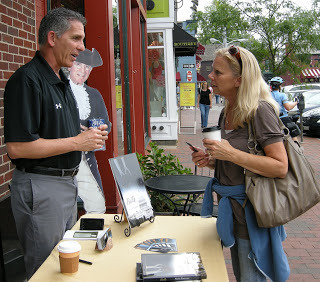
On the other hand, imagine an enormous trade show where thousands of book sellers, bookstore owners, agents, movie executives and of course prospective readers are all browsing aisles that include your booth. Is it worth the time and money to tap into this captive audience?
I decided the answer was yes, and last year invested about $2,000 in a booth on Writers' Row at the Javits Center in New York City. BookExpo America, billed as the largest gathering of book trade professionals in North America, drew 25,000 visitors over three days.
This is what I learned, and why I'm better prepared for this year's show:
Increase your Twitter following by following followers of the conference. Find the conference website, locate its Twitter feed, and then see who's following. (In the case of the BookExpo, that’s about 17,000 followers). Then start following the ones that align naturally with your project.
Expect the Unexpected: this can include anything from traffic (Getting in and out of New York City is a task not to be taken lightly.) to aching feet due to shoes you didn't realize weren't meant to be worn 10 hours straight.
Let everyone know you're going, and that you will post blogs, pix and possibly video from the event. You can weigh in on what you're learning, celebrities who drop in, and important observations, like the fact that people are still excited about books and reading.
Make friends before you get there.
Find your booth in the conference guide and learn the floor plan
Schedule as many appointments as you can in advance
Scour the guide and shoot off introductory emails
Make an editorial calendar and get some things written in advance, like:
Tweets (make sure to include relevant hash tags)
Blog posts
Guest posts for other blogs
Facebook posts
Capitalize on being the little guy. You'll be more nimble than those tied to the big publishing houses, so think like David. While Goliath is chained to his handlers, set your own agenda and meet as many people as possible. Make sure your booth is manned by capable surrogates while you're away.
Perfect your 10-second pitch. People at trade shows get bewildered by all that's going on. You're lucky to get one quick shot at capturing their attention, so make sure you've nailed your pitch. Here's mine about Bella :
Isabel Moss knows she could lose her husband when he goes off to war. When the call comes, she's almost ready. What stops her cold is the second call...
Style your booth. You may want to invest in custom T-shirts for you and your staff. You definitely want to invest in some goodies – we used the very popular Hershey's Kiss. We also passed out custom bookmarks about Bella, and had a poster-sized copy of the cover strategically hung on the curtain behind the booth.
Be an observer as well as a participant. When an idea strikes or you see something unusual, take notes. And photos (and video, when possible) of everything! These will come in handy in future blog posts.
Measure your results. The dividends from a trade show won't be immediately apparent, but the potential payoff is significant. Possible rewards include increased exposure, new networks, interview possibilities and a captive audience of prospective readers.
------------

Bio: Steve Piacente (@wordsprof) has been a professional writer since graduating from American University in 1976. In 2010, he self-published Bella, the story of a widow's quest to uncover the truth about her husband's death on an Afghan battlefield. The forthcoming Bootlicker is his prequel. Steve started as a sportswriter at the Naples (FL) Daily News, switched to news at the Lakeland Ledger, and returned to D.C. in 1985 as Correspondent for the Tampa Tribune. In 1989, the native New Yorker moved to the same position for the Charleston (SC) Post & Courier. He is now deputy communications director at a federal agency in Washington, D.C., and teaches journalism classes at American University. Contact Steve at steve@getbella.com. Bella is available from Amazon.
--------
Tony Eldridge is the author of The Samson Effect , an action/adventure novel that Clive Cussler calls a "first rate thriller brimming with intrigue and adventure." He is also the author of the Twitter marketing book, Conducting Effective Twitter Contests . His new novel, The Lottery Ticket , was just recently released on Kindle.








Published on April 25, 2012 07:30
April 9, 2012
The Secret To Overnight Book Marketing Success By Jim F. Kukral

Since I've archived the blog, it's continued to get healthy traffic. I've also received requests from authors and book marketing experts who expressed interest in providing guest posts. I've decided to continue to publish guest posts as they come in. If you'd like to submit a post to this blog, check out the Guest Post FAQs page of the blog.
Today, author and CEO of the book marketing agency Digital Book Launch, Jim F. Kukral, will discuss the secret to overnight book marketing success. Be sure to check out the links to his books and his websites throughout the post.
The Secret To Overnight Book Marketing Success
By Jim F. Kukral
As more and more new authors begin to self-publish, we are finding out that the majority of them somehow believe that just because you can upload your book to Amazon overnight, that you can sell millions of copies of your book overnight as well.
The cold, hard truth: It's not going to happen.
Having overnight success of your book would be like winning the lottery; the odds aren't great to say the least. Just like in life and in business, there are a very few select group of people who "hit the winning ticket" by accident or luck. As I wrote in my book Business Around a Lifestyle, Volume 1, "Some people are born into money and success. Some just get lucky. The rest of us, well, we all have to work to get where we want to be."
So you want to be a successful author? Stop believing that you can somehow do it overnight or that you're going to hit the lottery. You're not.
When I was traditionally published by a major publisher for my first book, I made the same mistake that most first-time authors do. I thought they would do all the marketing for me. I thought they would get me into bookstores and they would send out tons of press releases telling the world how great my book was. I thought they would give me me a step-by-step marketing plan of what they were going to do to help make me the next big author in their pen.
I was wrong. I did pretty much everything on my own, which I found out was a LOT of really hard work. Lesson learned. So since I was doing it all on my own anyway, I decided to self-publish instead.
For my next books I created detailed marketing plans and did complex book launches. I learned first-hand how many hours needed to go into marketing a book, even sometimes to only sell a few hundred copies or less. Book marketing is exhausting.
Seven books later, I've figured out in order to be successful an author in today's world, you have to have two major components in place. Sure, there are many, many more, but these two things are the core things you need to do to even have a sniff at success.
Number one, you HAVE to write a great book. Number two, you HAVE to learn how to market your book.
Writing a great book is essential because your sales will be affected by the reviews of your book. If the book isn't good, it's not going to get reviews, or even worse, it'll get poor reviews, which can really sink your ship fast.
Let's assume you have already written a wonderful book. Now comes the really hard part: Marketing it. Like you, I wish there was a magic easy button I could push that would market my book for me, but unfortunately there is not.
Don't be discouraged. I know that is tough to hear. There is a light at the end of the tunnel.
So what does it take to market and sell books? Here's just a short list. The long list would make your head spin.
A well researched and inviting title
An amazing book cover that grabs readers
An awesome book!
Top-quality editing and proofing
Tons of powerful reviews
A full-blown social media presence and campaign
An email list full of interested potential readers
A blog or website or landing page, or all three
Professional copy for your description to entice readers
Blurbs from well-known people in your industry
Hours and hours of your time
Want more? Grab a free copy of my book The Ultimate Digital Book Promotion Handbook for Authors.
Where in that short list do you see anything that can be done by clicking an easy button?
The point of all of this is to make you realize that there is no secret to overnight success. If you want to be successful as an author you're going to have to dig in and lay down some blood, sweat and tears. The good news is that if you are willing to do that, the opportunity in front of you is immense.
------

Jim F. Kukral writes books that inspire and educate readers on how to live better lives and improve their businesses on the Internet. He is the CEO of a groundbreaking book marketing agency called Digital Book Launch. He is also the found of a free book marketing community for authors called Author Marketing Club.
-------
--------
Tony Eldridge is the author of The Samson Effect , an action/adventure novel that Clive Cussler calls a "first rate thriller brimming with intrigue and adventure." He is also the author of the Twitter marketing book, Conducting Effective Twitter Contests . His new novel, The Lottery Ticket , was just recently released on Kindle.








Published on April 09, 2012 04:00
January 19, 2012
Over 500 Post From Great Authors And Experts
Three years ago, I started Marketing Tips For Authors and I have met a ton of wonderful authors, authors-to-be, and book marketing experts. I have had the privilege of inviting talented authors to submit guest posts. Some were best selling authors like Jerry Jenkins (Do-It-Yourself Marketing), others were authors who had their first book pending publication.
I also had a number of talented book marketing experts freely share their knowledge. They wrote on things like how to sell more book, how to use social media in your book marketing plan, and a host of other evergreen articles that still lend values to their readers.
But the time has come for me to wrap up my work with Marketing Tips For Authors and move on. A number of factors came into play when making this decision, and it took me a long time to make it. I'm proud of what we have built on this blog. One thing that made the decision easier to make was knowing that the blog would live on.
If you look to the right, you'll see a Google search box for this blog. Type in any book marketing subject you want to read about and you'll find links to everything written on this blog about that subject.
So poke around, read and continue to learn . Thanks to everyone for making my run on Marketing Tips For Authors something I'll remember and cherish forever. And to all the authors and authors-to-be, I wish you all my best. Remember, once you write your book, you'll have a legacy that will long out live you. My guess is that you'll never truly know all the people you'll bring joy to.
--------
Tony Eldridge is the author of The Samson Effect , an action/adventure novel that Clive Cussler calls a "first rate thriller brimming with intrigue and adventure." He is also the author of the Twitter marketing book, Conducting Effective Twitter Contests . His new novel, The Lottery Ticket , was just recently released on Kindle.








I also had a number of talented book marketing experts freely share their knowledge. They wrote on things like how to sell more book, how to use social media in your book marketing plan, and a host of other evergreen articles that still lend values to their readers.
But the time has come for me to wrap up my work with Marketing Tips For Authors and move on. A number of factors came into play when making this decision, and it took me a long time to make it. I'm proud of what we have built on this blog. One thing that made the decision easier to make was knowing that the blog would live on.
If you look to the right, you'll see a Google search box for this blog. Type in any book marketing subject you want to read about and you'll find links to everything written on this blog about that subject.
So poke around, read and continue to learn . Thanks to everyone for making my run on Marketing Tips For Authors something I'll remember and cherish forever. And to all the authors and authors-to-be, I wish you all my best. Remember, once you write your book, you'll have a legacy that will long out live you. My guess is that you'll never truly know all the people you'll bring joy to.
--------
Tony Eldridge is the author of The Samson Effect , an action/adventure novel that Clive Cussler calls a "first rate thriller brimming with intrigue and adventure." He is also the author of the Twitter marketing book, Conducting Effective Twitter Contests . His new novel, The Lottery Ticket , was just recently released on Kindle.








Published on January 19, 2012 21:24
October 6, 2011
eBook Marketing: What Goes Around Comes Around By James Moushon
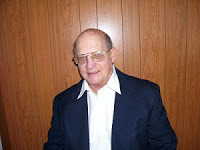
Today, we have a treat as our guest author. James Moushon is an author and a pioneer in the e-publishing world. I found him through his blog and numerous guest articles and was thrilled when he agreed to share his knowledge on e-book publishing with us. When you are finished with this post, make sure you take a look at his other online writing.
eBook Marketing: What Goes Around Comes Around
By James Moushon
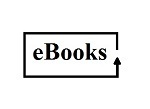
To eBook authors, marketing can be a daunting task. Whether you're an indie publisher or you are using a traditional publisher, the marketing is usually left up to you.
It is a digital world now and self-publishers are not tied to bookstores with limited shelf space and a revolving inventory. In fact it will be on sale for a very long time. With the longevity of your eBook's life, you have the ability to try several different marketing avenues until you find one that works.
So where do you start with this marketing thing?
Your marketing goal should be to fill the sales pipe with quality content and give your readers as many entry points to your buy pages as you can.
Synergy
One of the phenomenons in the ebook marketing world is the momentum that is created when an author catches on. Every week it seems we are hearing about an author reaching the ebook million unit sales plateau. Their secret is they know how to market and brand themselves. Yes they are in all the right places. The speed of the Internet and the reach it offers to the ebook marketer is breathtaking.
So how do they do it? Besides great content and hard work, how do they reach that prize status?
Entry Points
One of the marketing strategies they use is the creation of as many entry points as they can to get to their sales page. They never miss an opportunity to put that ebook product in front of their prospective readers. Here are some of the entry points.
Ebook-links. Don't miss the opportunity to add links in your ebook to the other titles that you have for sale. You should also link to your author's website and blog and other reference points so readers can find their way back to you. Use the power of links.
Traditional publishers are missing this one on a regular basis. They are so anxious to make a copy of the paper version and get it online; they don't render the buy links to the other titles in your ebook.
Websites. Have multiple websites. I recommend one for each ebook plus an author site that encourages reader communication. Make sure you reference your other titles on the individual sites. There are many free opportunities to setup multiple sites and blogs. Have giveaways and conduct contests. Anything that keeps your readers coming back to your website. Having your readers help with the title of your next book or the design of your next cover is a powerful tool to use.
Blog. Toss in a blog with interesting reader information and an interaction component. Don't forget to include a blog list on your site. You know. Related blogs you like to read. They in turn will link back to your blog, creating more entry points. Encourage the cross-linking. It is win-win for both parties.
Tags and Metadata. One of the most important components that must be addressed every time you do something online is the path readers will take through search engines to get to your information. Search Engines Optimization (SEO) is the key to readers finding your ebook online. Spend some time analyzing what types of tags and categories you want to include in your messages. You may want to start with Google Keywords. Then look at your competition and see what they are doing.
Email Signature Line. Use your email signature line to sell your ebook. Show a thumbnail of your cover with a link to your buy page. Then start emailing a lot. Sometimes emails work better than commenting on forums and other blogs to create activity.
Guest Blogs and Interviews. Try to get involved in your genre community. A guest blog or an interview is a great opportunity to get your name and your ebook in front of another audience of readers and buyers.
Helpers. Connect with your helpers with links to their sites. Your helpers include your copy editor, your cover designer and your book designer. Linking to them can create a turnaround with a link back to your site.
Reader Interaction
You must develop an interaction with your reader. Here are some ideas.
Direct contact to your audience through social networking is very time consuming but it can be very rewarding. Facebook and Twitter along with Linkedin and Mobileread are good venues for starters.
As you go through your marketing activity, you must give your reader 'that expert feeling' about you and your book. Nothing turns them off more than marketing copy with typos. Talk the talk and walk the walk.
Your thumbnail cover could be the difference in the buy decision. You must keep in mind an ebook cover is looked at differently than the traditional cover. The prospective reader can't see the brilliant colors or feel the raised print. If you can't read the thumbnail, neither can the prospective buyer. You may have two covers. One for the paper version and one for the ebook version.
Amazon Public notes could be another opportunity to interact with your reader base and create synergy. If you can get them involved, your next ebook will be an easier sell.
End Game
So where are we going with this? Activity is a good thing. The more interaction you have with readers, the bigger opportunity you have for continued ebook sales. Here are several takeaways.
Motivate the buyer at each entry point. Make it easy to buy your ebook.
Get readers to read your first two chapters.
Develop synergy between each entry point with reader interaction.
If the Amazon or Barnes and Noble sites are the only place readers can find out about your ebook, I advise you to go fishing and dream about what could have been.
How will they find you and your ebook? Should you seek a mentor to help you market your ebook? You will find out that there is not enough time in the day to do everything yourself.
View my website: HBSystems Publications
Or EMAIL at: jrm@hbspub.com
Or go to my blog: The eBook Author's Corner
Author: Call Off The Dogs, a rendered eBook
LinkedIn Profile: James Moushon

Bio: James Moushon
Born in Illinois, James Moushon is a published writer in the electronic document field.
Moushon is a graduate of Bradley University in Peoria, IL.
Starting over 15 years ago, he helped lead the startup of the electronic forms industry in the creation, conversion and usage of electronic forms by supplying that industry with a continuing source of published literature, software products and training seminars.
Moushon worked with over 200 companies and organizations like the IRS, Commerce Clearing House, Nutrilite, UPS, MGM, Sony International and Royal Paper Box with their conversion from paper forms to electronic forms.
In 2003 Moushon moved his focus to ebooks and their development.
He recently published a rendered eBook : Call Off The Dogs, a story about the Assassination of President Kennedy, which is available on Amazon. It is his first novel.
--------
Tony Eldridge is the author of The Samson Effect , an action/adventure novel that Clive Cussler calls a "first rate thriller brimming with intrigue and adventure." He is also the author of the Twitter marketing book, Conducting Effective Twitter Contests . His new novel, The Lottery Ticket , was just recently released on Kindle.








Published on October 06, 2011 07:51























